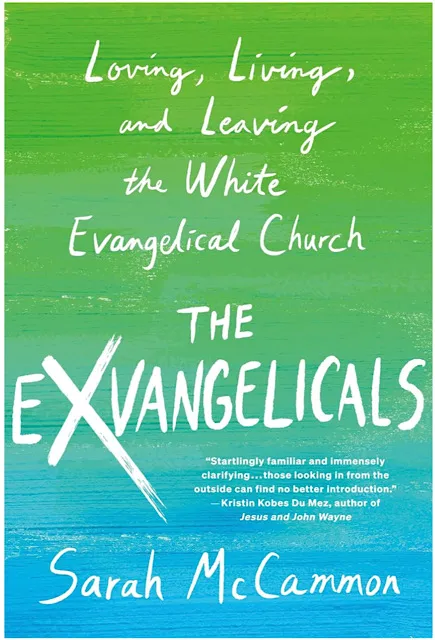The Exvangelicals by Sarah McCammon
I just finished up reading Sarah McCammon’s new book The Exvangelicals and I need to take the time to recommend it here. McCammon, a 40-something NPR journalist, has written a book that’s part memoir and part explainer on where Exvangelicals have come from over the past decade, and, more importantly, why.

When I reviewed Tim Alberta’s The Kingdom, the Power, and the Glory earlier this year, I noted at the time that he was joining a list of kindred spirits who I found online or by reading their books, and who turned out to be fellow devout homeschooled kids who grew into adults questioning evangelical distinctives and dismayed by the devolution of white American evangelicalism into Fox News-watching Republican sheep. I named McCammon at this point as another one of those people. Little did I know how familiar her story would be.
I first encountered Sarah McCammon when she was a host on Iowa Public Radio. Eventually I followed her on Twitter, and continued to read and occasionally interact with her as she moved from Iowa to the east coast, eventually to work directly for NPR. Her reporting during the 2016 presidential campaign was nuanced and insightful. In hindsight, I should’ve known why.
In The Exvangelicals, McCammon unpacks her own story and uses it to illustrate the Exvangelical movement. She’s a few years younger than I am, but our stories run parallel tracks: growing up in the Midwest, a devout churchgoing family, culturally sheltered, homeschooled, evangelical youth groups, marrying young, eventually finding her own faith torn as she experienced the wider world. Eventually she left the church and faith fervor of her youth, getting divorced, becoming an Episcopalian, marrying a Jewish man. Despite so much Evangelical rhetoric saying the Exvangelicals are only leaving because they want to be free to enjoy sin, McCammon recognizes that it’s actually really painful:
Leaving conservative evangelicalism means giving up the security of silencing some of life’s most vexing and anxiety-inducing questions with a set of “answers” - about the purpose of life, human origins, and what happens after death. It also means losing an entire community of people who could once be relied on to help celebrate weddings and new babies, organize meal trains when you’re sick or bereaved, and provide a built-in network of support and socialization around a shared set of expectations and ideals.
It’s often felt, for me, like a choice between denying my deepest instincts about truth and morality to preserve that community, or being honest with myself and the rest of the world and risking that loss.
She has summed up there in a single sentence my experience of the last dozen years.
It was interesting reading this book back-to-back with Lyz Lenz’s This American Ex-Wife. Lyz is another exvangelical, though I don’t know she’d describe herself that way, who writes with an acerbic fire about coming through her evangelical upbringing and a troubled marriage. (Lyz actually provides one of the blurbs on the back of McCammon’s book.) McCammon’s prose is more NPR, Lyz is more shock jock. McCammon makes me comfortably say “yes, this! Exactly this!”. Lyz makes me uncomfortably say “well, she’s not wrong…” They are both important voices whose words should be read and wrestled with.
The Exvangelicals is a book I would recommend for anyone outside the evangelical experience trying to understand where us weirdos are coming from, and for any one of us Exvangelical weirdos who wants to feel less alone.